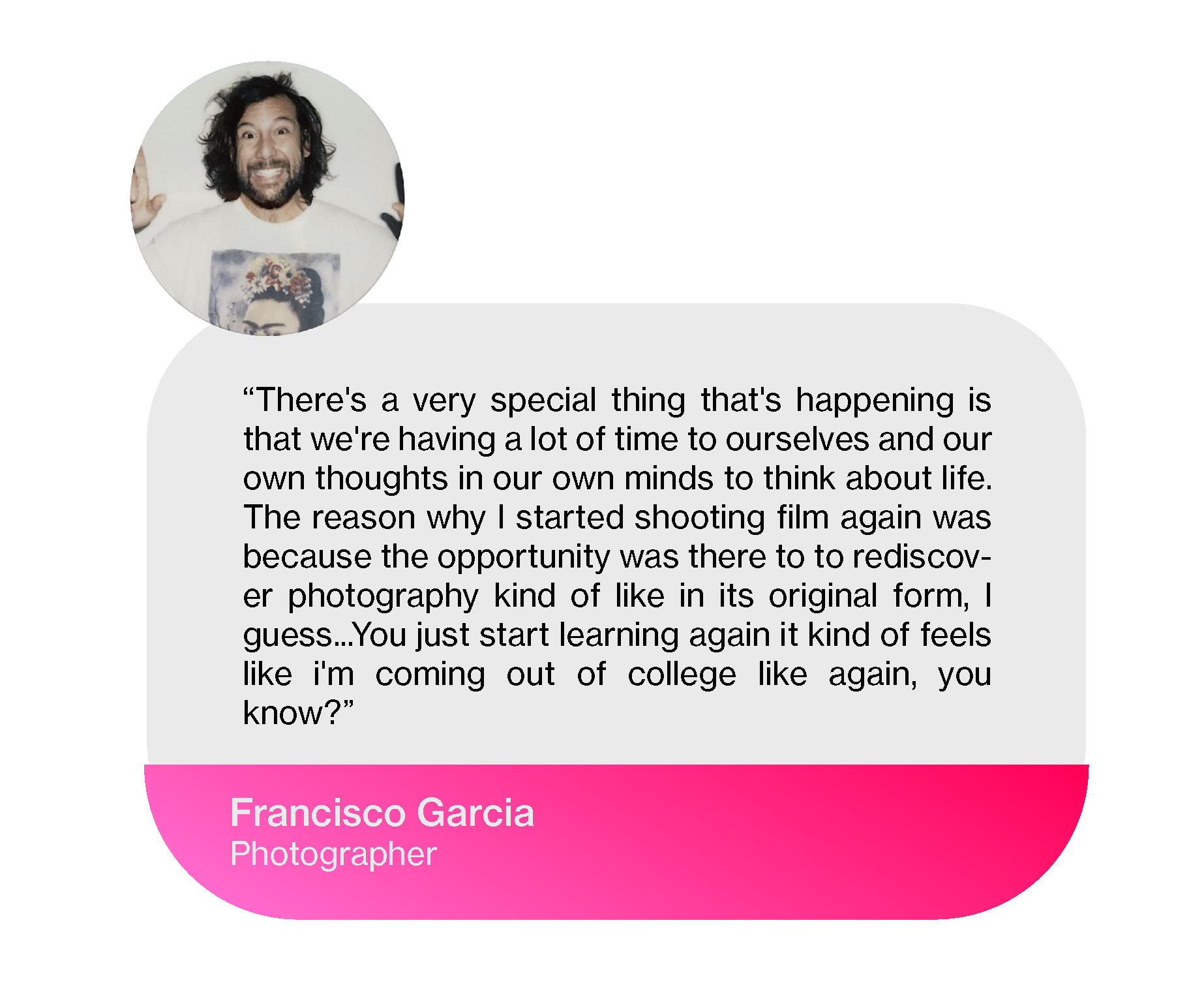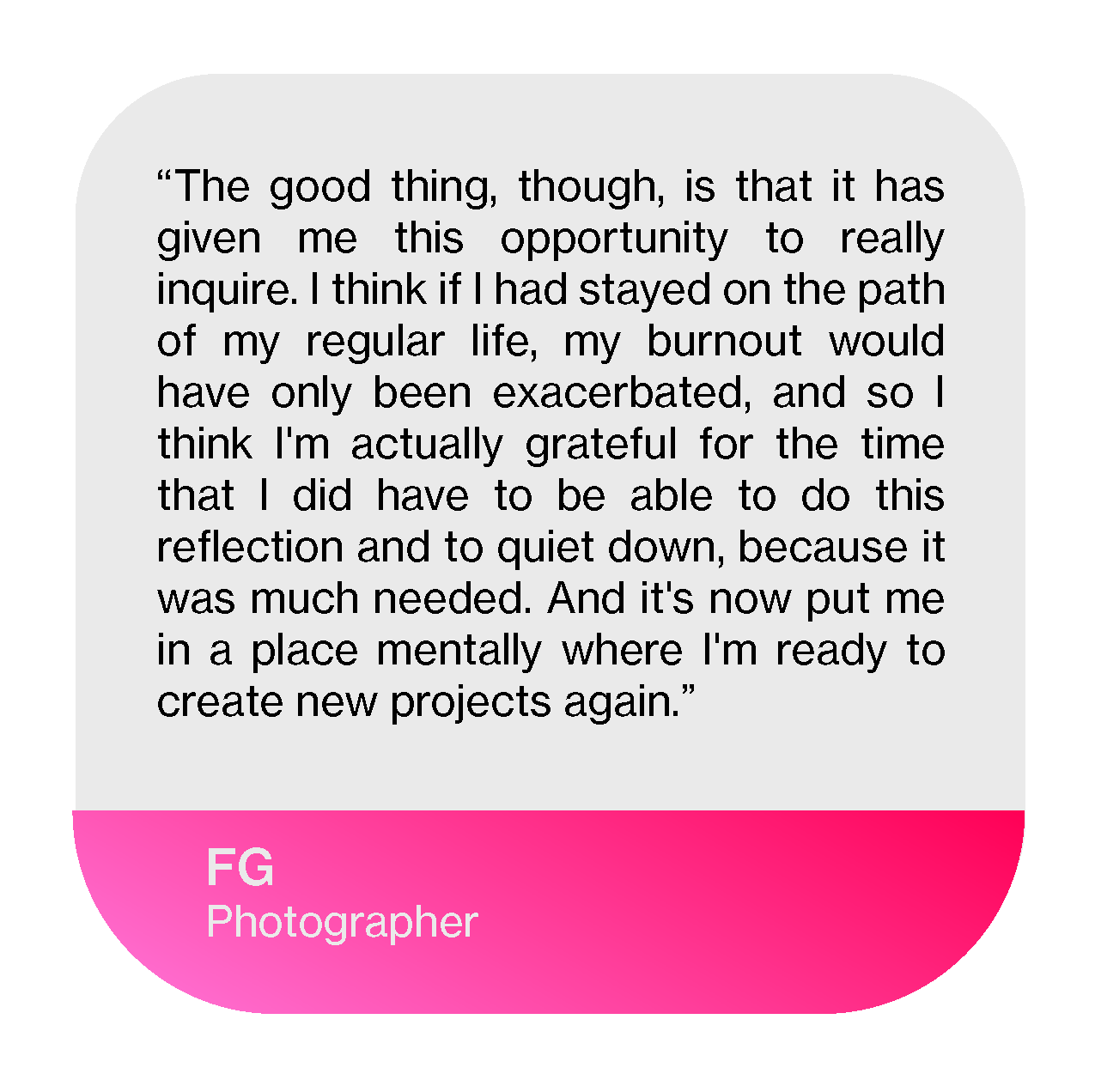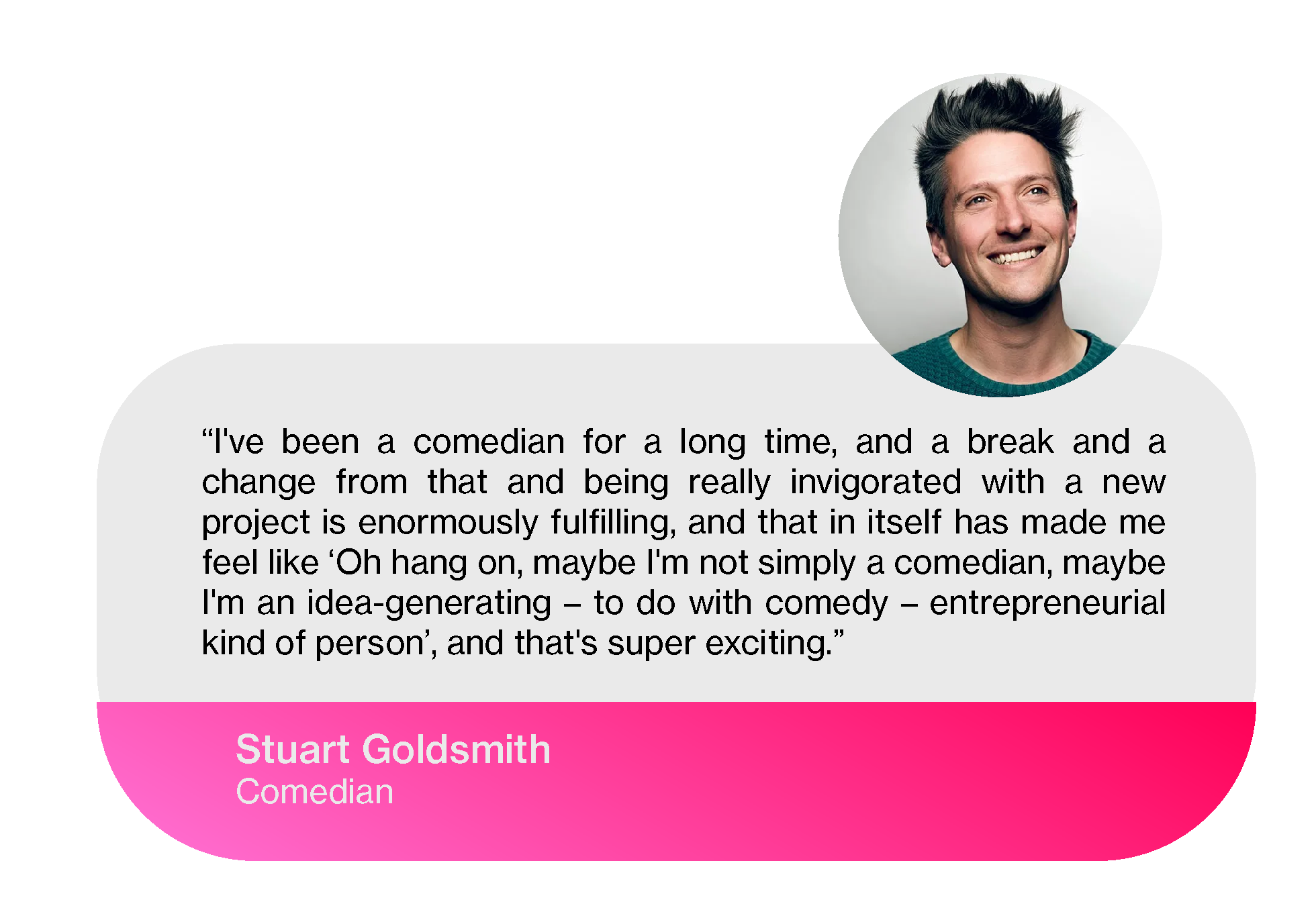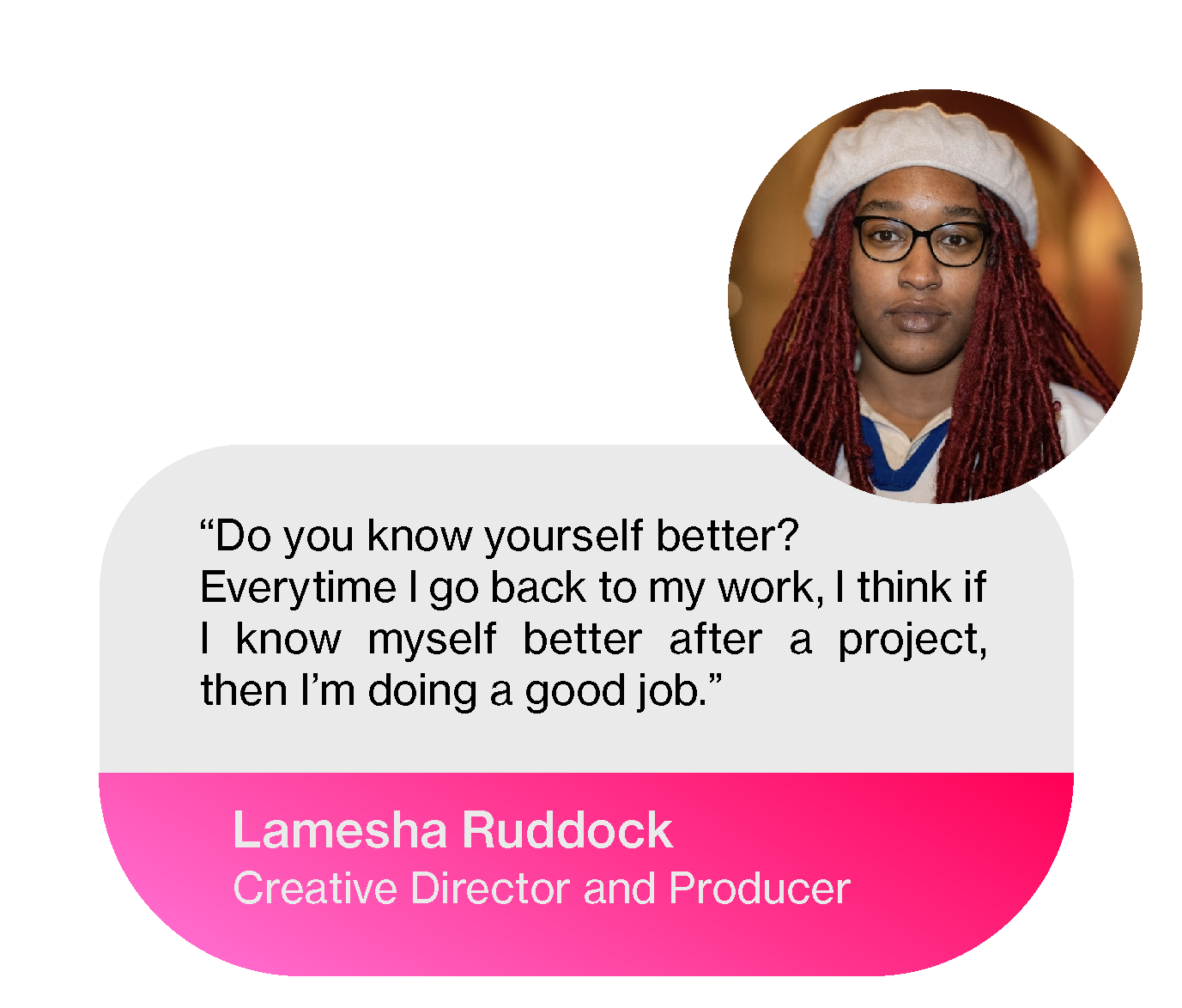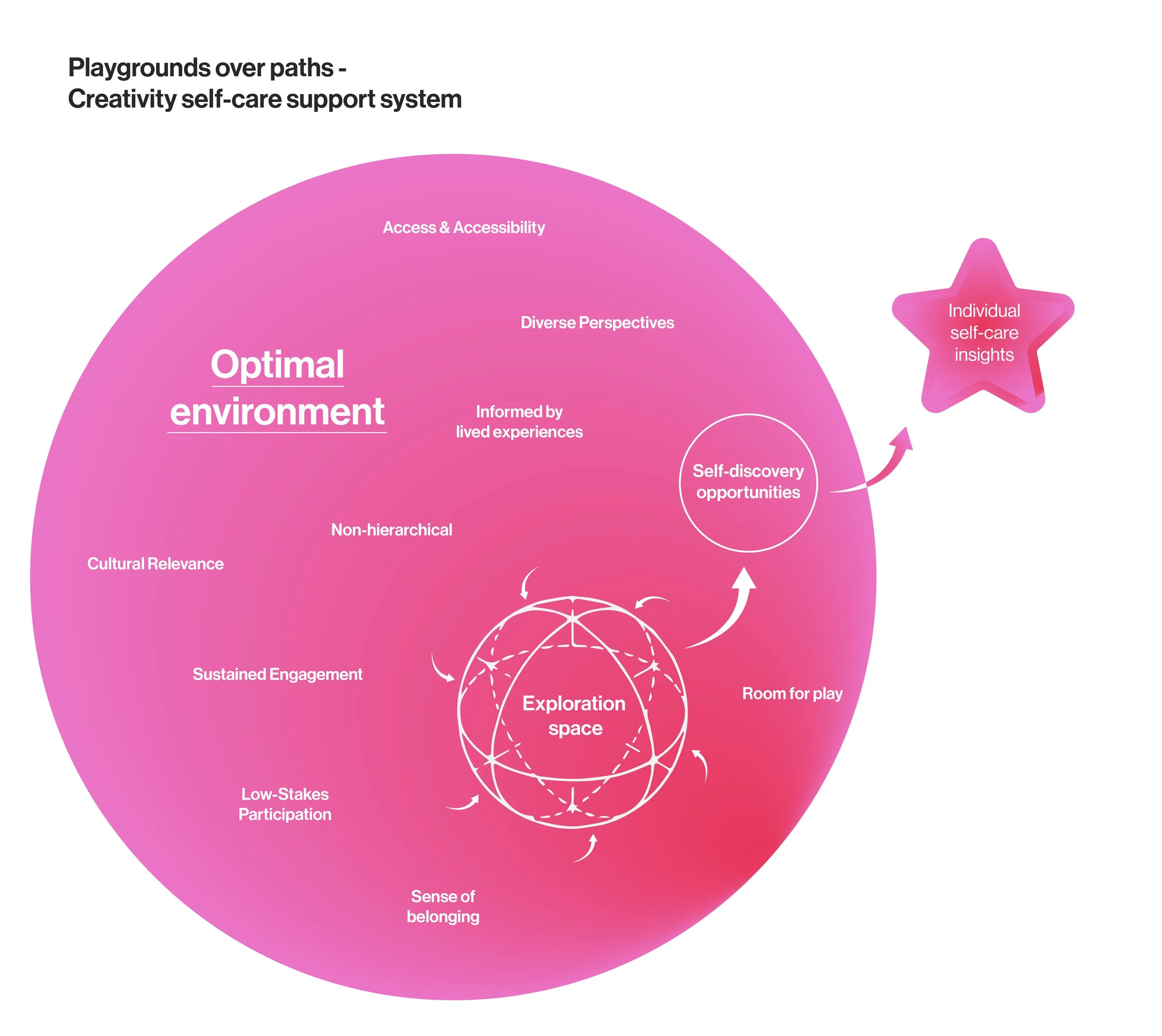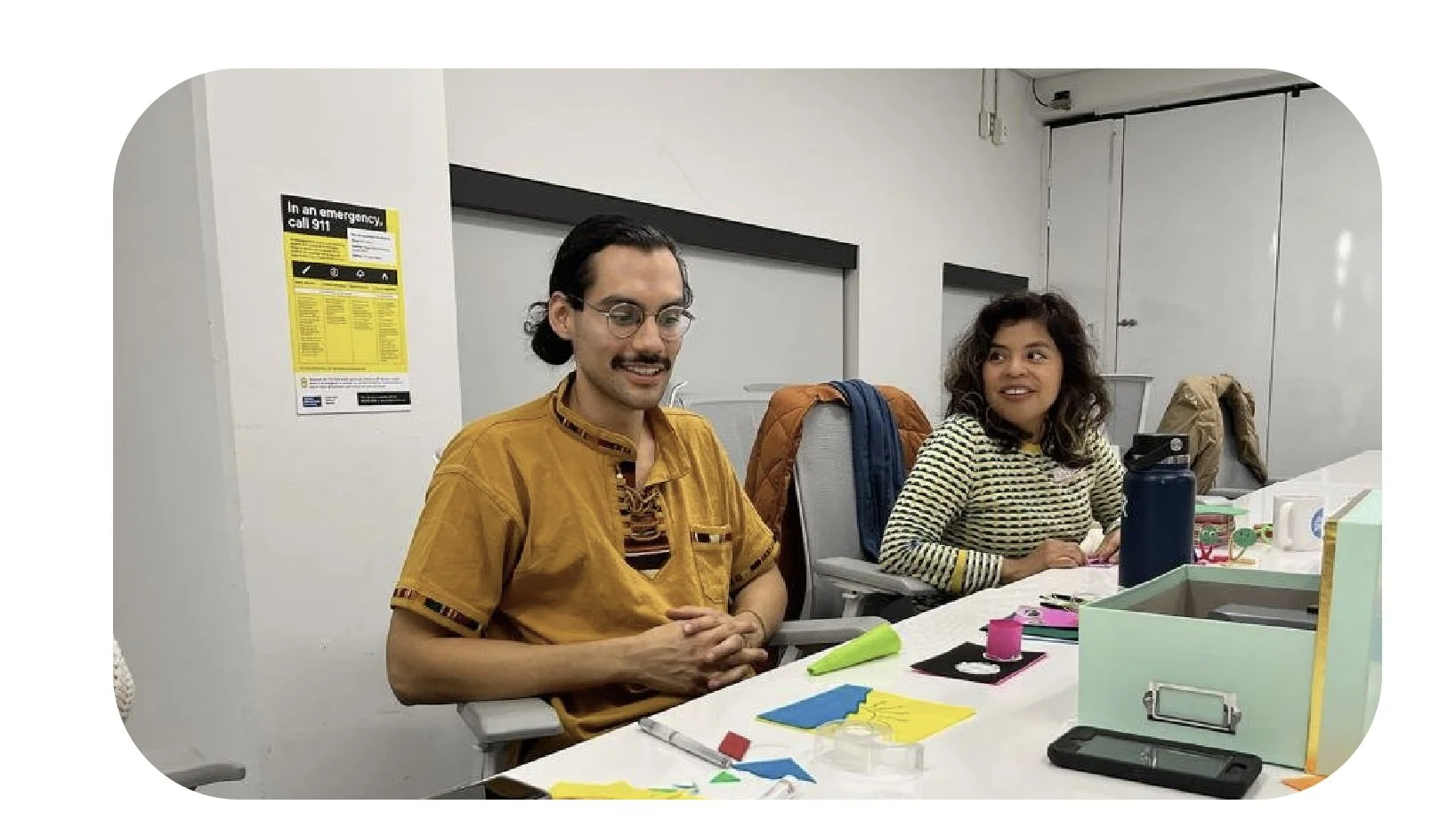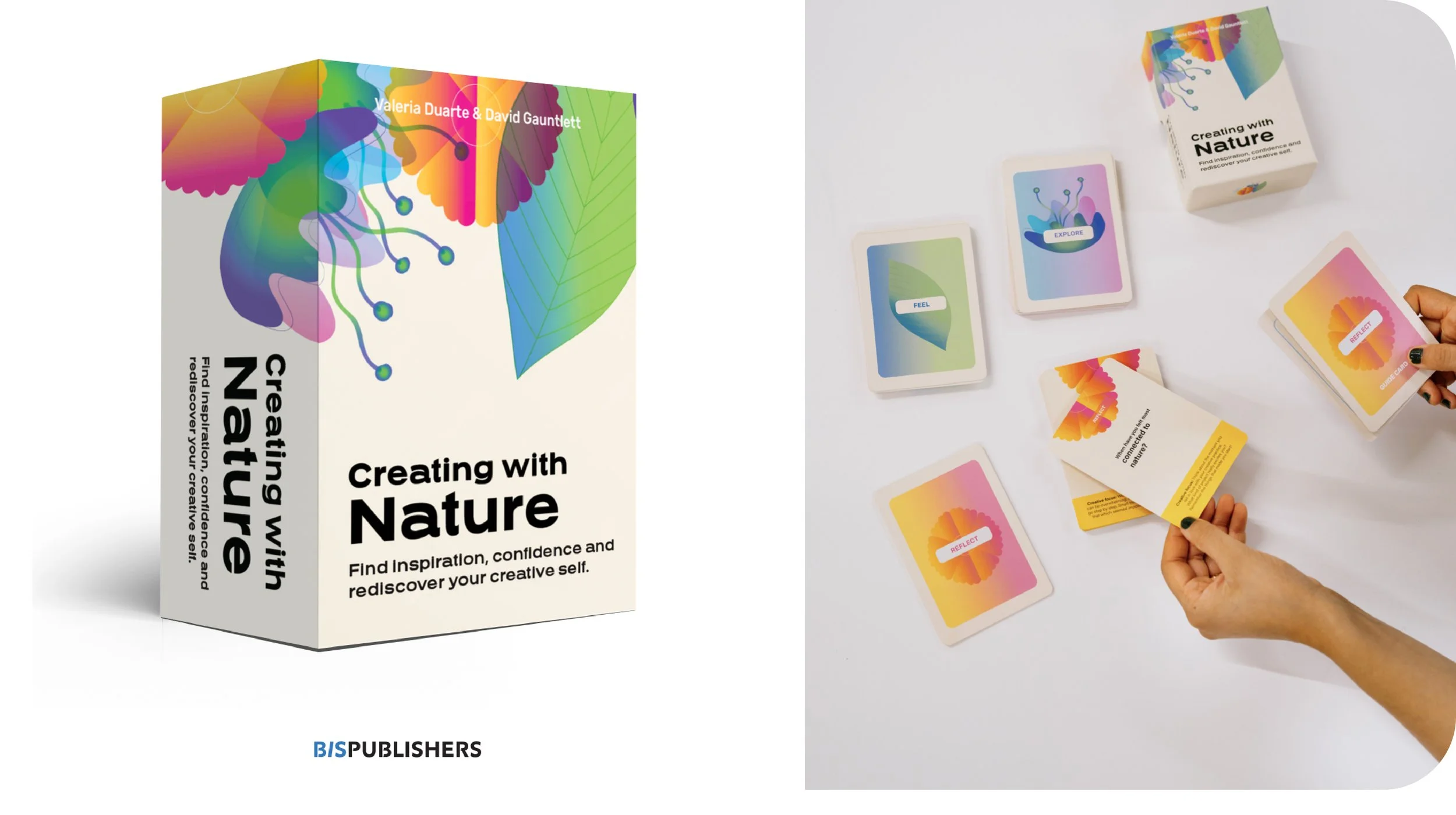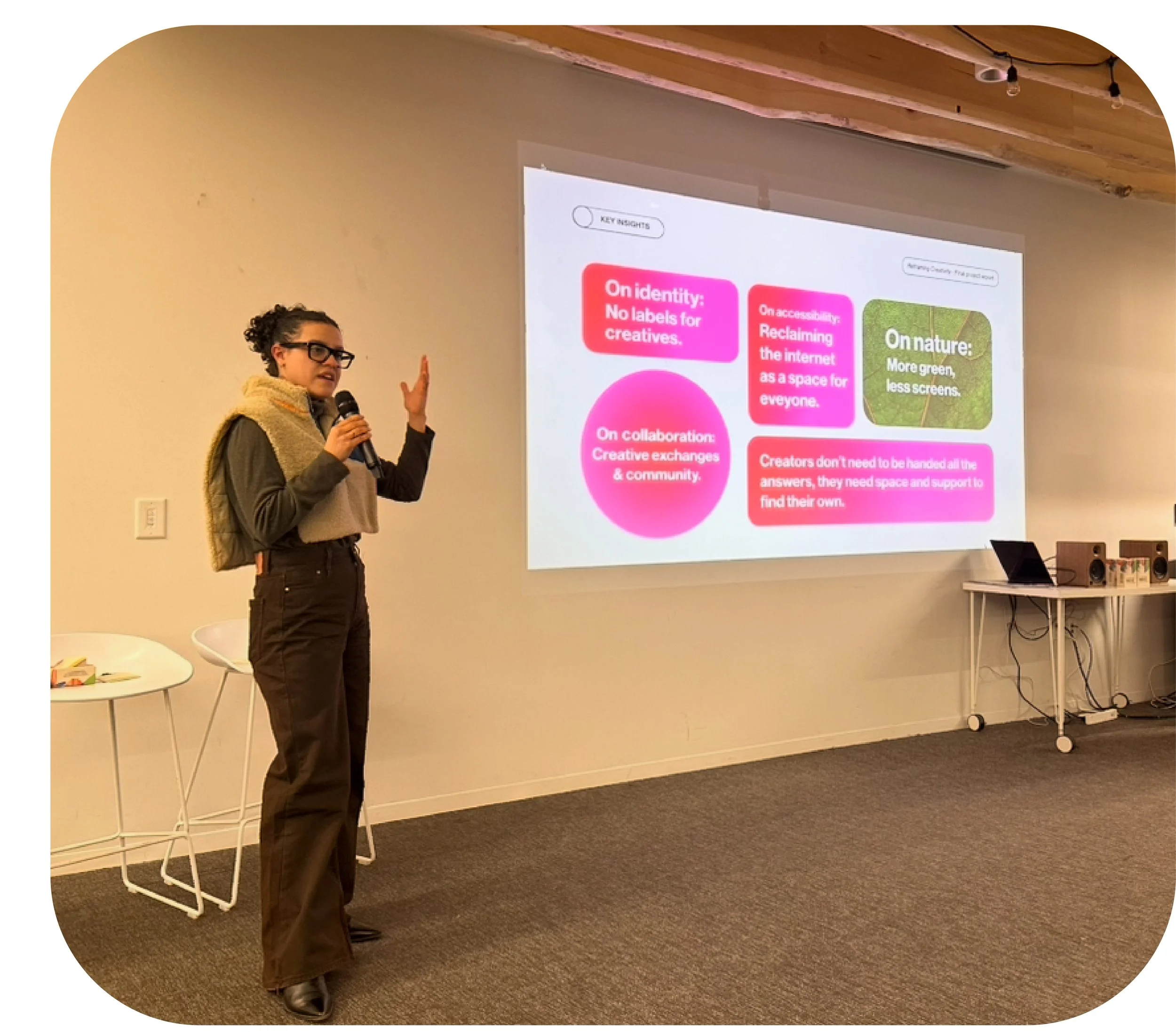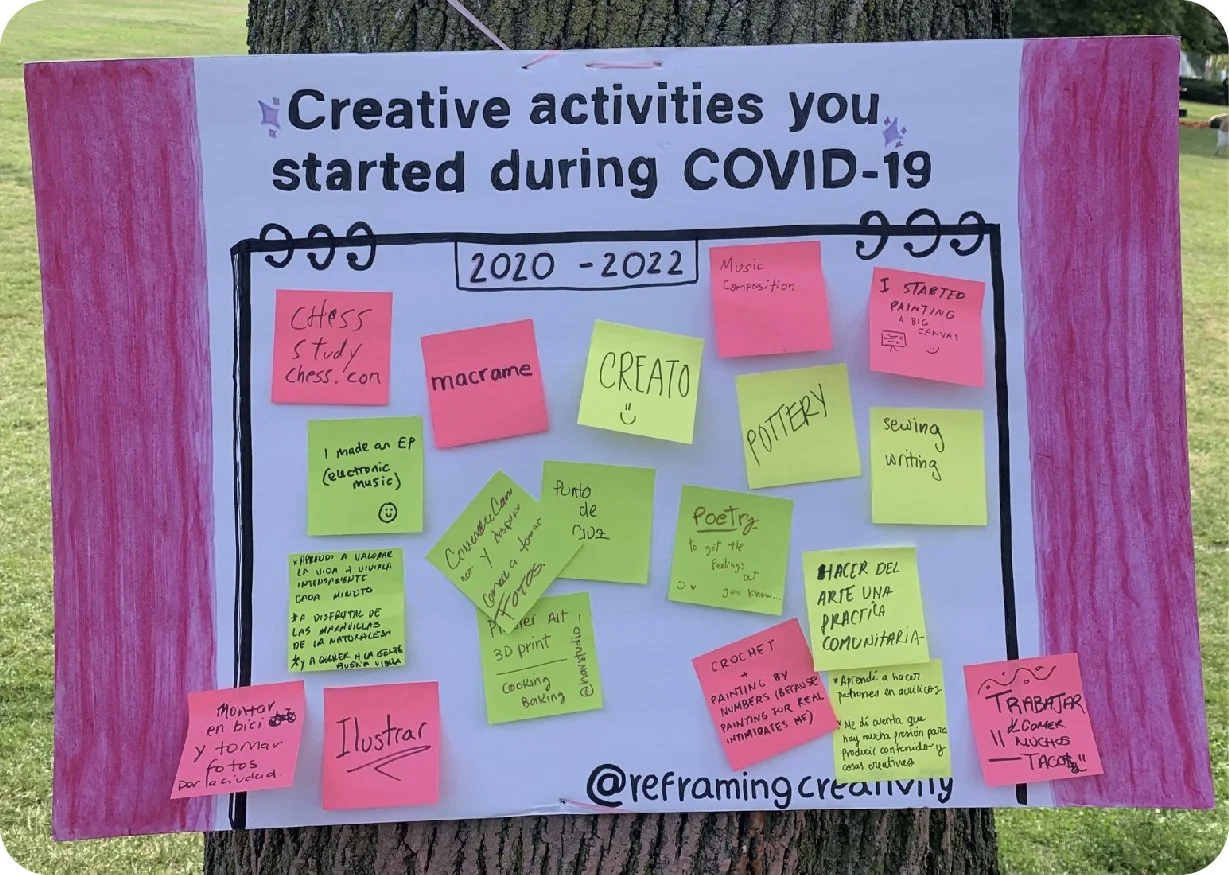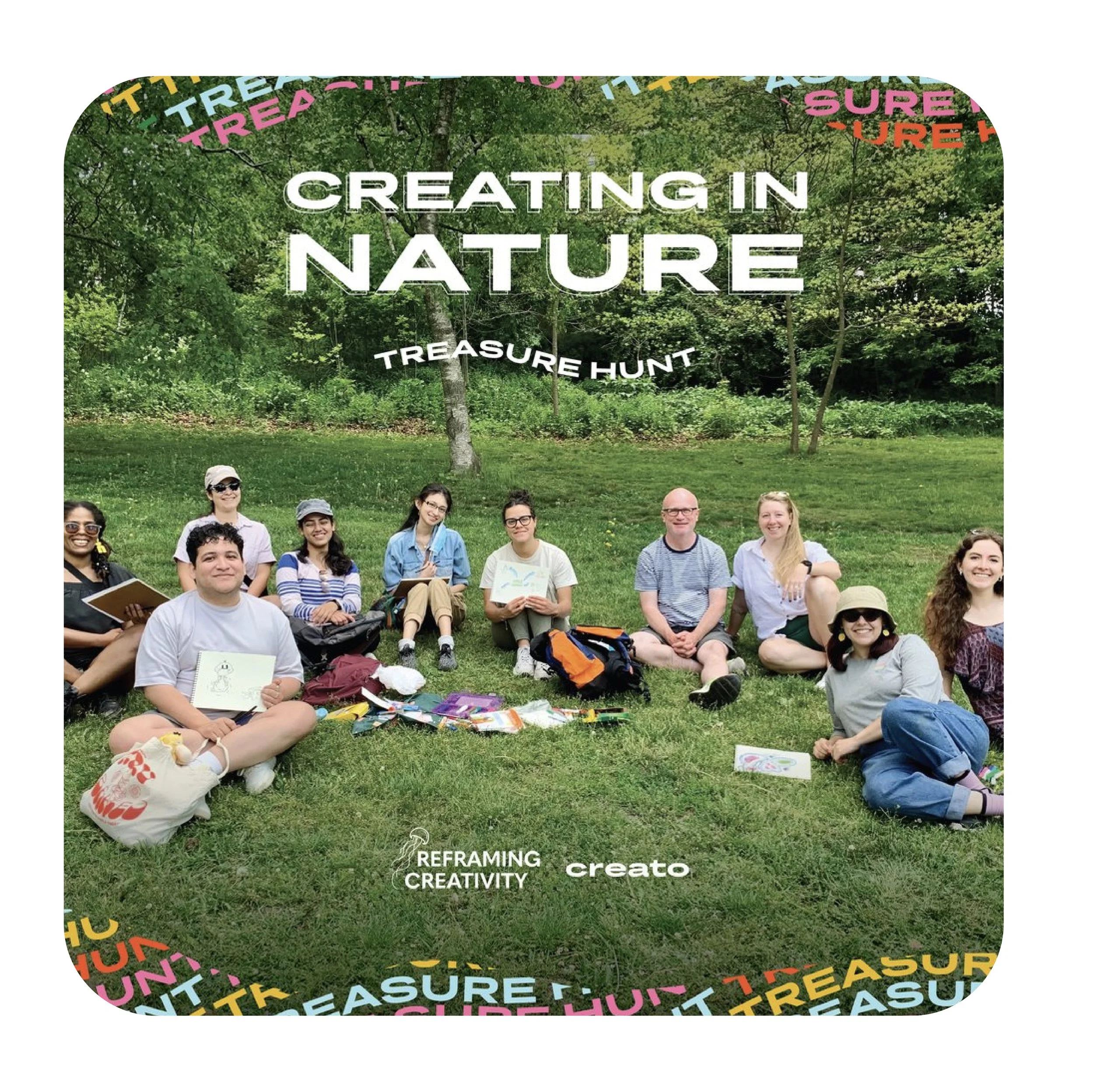Project time period: July 2021 - July 2024
Reframing Creativity - Research project
How do artists & creators navigate adversity, and what can we do to support them? A multi-year research project funded by SSHRC and Toronto Metropolitan University.
My role for this project: Research & Project Manager / Main tasks: Grant writing for SSHRC, research strategy and design, co-facilitator, final report writing and visual design, main author of peer-reviewed articles, as well as main author and designer for the deck of cards Creating with Nature.
The Reframing Creativity project, run by David Gauntlett and me, emerged from a deep concern for how independent artists and creators would endure and navigate the COVID-19 crisis. While most reports focused on the survival of institutions and industries, we turned our attention to the often overlooked individuals—the freelancers, gig workers, and self-employed creatives. This project was born to help bridge such a gap.
We were interested in understanding how creators navigate their self-identity when daily routines are disrupted, how artists and creators adapt and refocus during challenging times, and in identifying ideas, strategies and knowledge that would support creative and collaborative practices in the future.
On Identity: No labels for creatives.
The pandemic turned into a time of reflection and self-exploration where creators could rethink or redirect different aspects of their creativity, including the values that guide their work or how they would like to manage their practice moving forward.
On Nature: More green, fewer screens.
Participants kept talking about finding a valuable connection to nature and the great outdoors. Although nature was not a topic we included in our list of questions, they seemed eager to comment on how nature became a fundamental part of their lives and woven into their work and creative experiences during the pandemic.
On Collaboration: Creative Exchanges & Community.
Creators expanded their scope of collaboration during the pandemic; since potential collaborators were now, like them, stuck at home but connected online, they found an opportunity to work with fellow artists and creators across the globe. Also, there is a clear need for communities where creatives can form friendships, build a sense of belonging and learn from one another beyond a transactional relationship.
On Accessibility: Reclaiming the internet as a space for everyone.
The hybrid model is here to stay. Participants agreed that the hybrid model that entails flexibility in either remote or in-person options for meetings and coworking sessions was the most desired, not only for the pre-production and production process of a creative project, but for the possibility of viewership and accessibility to their projects from the disability community – especially from individuals with visual, motor, and auditory issues.
On playgrounds over paths:
Creators don’t need to be handed all the answers; they need inclusive and accessible platforms that would allow for them to explore their particular experiences to come up with their own, and find the right mindset that can support their creativity in a difficult time. As much as we wanted to find it, there’s no magic tool/answer for all.
Our Impact:
Our findings inspired multiple publications including our deck of cards Creating with Nature; a creative and educational tool designed to spark new ways of thinking and doing by reconnecting with the natural world, now available world-wide.
We produced conference presentations, reports and peer-reviewed articles from which other researchers, NGOs and policymakers can draw to inform future initiatives around the creative industries, cultural participation, creativity and mental health and creative adaptability.
—> Download the full report
This project was inspired by the resilience, adaptability and work of creators locally and across the world, who found a way to keep going amid a crisis, and those who are finding new ways to reshape their creative work and imagining what might be possible in the future.
We are very proud of it and hope you enjoy reading about it!
Special thanks to our partners and collaborators: Jodianne Beckford from Noire Girls Plant , Claire Hopkinson, former Director and Chief Executive of Toronto Arts Council & Toronto Arts Foundation, Ramona Pringle, multiplatform producer & interactive video artist, Tess Sutherland, Digital Skills Educator at Pinnguaq, Shawn Newman, Director, Research and Progam design at Skills for Change, and Creato, a collective that supports and amplifies Latin American creators in Canada.
We are especially grateful for the support of an Insight Grant from the Social Sciences and Humanities Research Council of Canada
Text and all graphic visuals: Val Duarte

